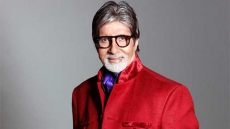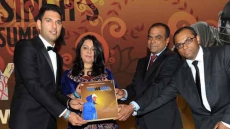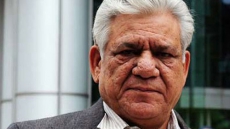Preferring intensity to money power, National Award-winning filmmaker Dibakar Banerjee feels Bollywood is losing its naturalistic style, distancing itself from the rich oeuvre of restrained, controlled performances and veering towards more money and decibel power.
The "Khosla Ka Ghosla" maker says shades of that natural style can still be seen to some extent in Bengali cinema.
"Bengali theatre was not theatrical at all. It was natural, very controlled, very restrained... so you still see traces of that restraint in acting. That's an amazing thing because Bollywood is losing that skill because I think it is getting louder and bigger. It's all about having more money, more decibel power," Banerjee told IANS in an interview here.
Having worked with Bengali film industry stalwart Prosenjit Chatterjee in "Shanghai", the Delhi-born Banerjee, a Bengali, is keen to work with more actors from the region for the value they add to his films.
"I think Bengal cinema has still got a trace left of that famous naturalistic style that used to be so well seen in its cinema and theatre," he said.
It is this particular style that Banerjee has tried to bring out in his forthcoming flick "Detective Byomkesh Bakshy!" based on the fictional detective created by Bengali writer Saradindu Bandyopadhyay.
It stars Sushant Singh Rajput, Anand Tiwari and Bengali actress Swastika Mukherjee in lead roles.
The reason for choosing an interesting mix of actors, Banerjee said, is for their prowess in enacting intense characters.
"I like intensity... that speaks far more than money. So if I have an intense actor or an intense plot or an intense character onscreen, I can actually spend Rs.10 crore less on fruitless car chases and bomb explosions and have the same reaction from the audience. That's why I like intensity," explained the "Oye Lucky! Lucky Oye!" maker.
But he is not averse to stars. It is only a question of being on the same page, he clarified.
"Not really (not averse). Stars give you a great advantage in opening up your film to a huge audience because one of the main reasons why audience go to see a film is the star.
"When I get a script that a star wants to work in the way that I want him to work; when the star gets a script that he likes and completely surrenders to me then I will work with a star," said Banerjee, whose political thriller "Shanghai" starred Emraan Hashmi and Abhay Deol.
For the time being, Banerjee is getting ready to dish out a young Bakshi, an "eccentric man who is on odds with the world" to a pan-Indian audience and is "aware" of the possibility of comparisons that it might elicit with the Bengali series of films on the detective that have struck gold with viewers.
"My films have never really comforted every one in terms of giving them what they expect. I don't think "Khosla Ka Ghosla", "Love Sex Aur Dhokaa" and "Shanghai" gave any one a reason to say: 'Oh! that is what I expected'.
"So, I know that Byomkesh will shake up a lot of people. Whether it's a good shake or bad shake that time will tell," he said.
From the graphic art-like posters inspired by illustrators who have designed images for Bengali detective stories from the 1940s to a flash mob performance on the Howrah Bridge, Banerjee is leaving no stone unturned to perfect his vision of the detective.
"I think this kind of a film the audience needs to know because the experience of a detective film is not hugely entrenched in the Hindi film audience's mind that are used to see either love stories or comedies and a detective story has a different kind of a storytelling technique," he said.






